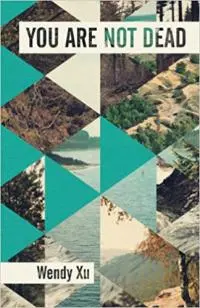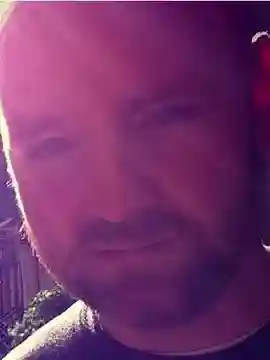Valentine's Day is upon us, and with it—for those of us with kids, at least—comes the inundation of Valentines to our children and from our children, with ridiculous Hallmark poetry about roses and candies and choo, choo, choosing you. So of course this feels like the perfect time to remind everyone that poetry is awesome and wonderful and not a tool to be used in the marketing of candy and fake love.
One of my biggest regrets as a writer is waiting too long to start reading poetry. Sure, I'd been exposed to poetry in elementary school, middle school, and high school. Sure, I too loved Dylan Thomas's "Do not go gentle into that good night." But whatever spark of interest I may have felt when reading that poem or any other when I was younger was immediately extinguished. I simply was not around people who wrote poetry or read poetry. So I didn't either.
Even when I learned I was a writer—because it's something you do learn over time, sometimes without realizing it—I did not hang out with other writers. I hung out with people who made fun of writers. So in my late teens and early twenties, I wrote without many people knowing I wrote. I did not have a community of other writers to help me or to tell me what books I should be reading. I sure as hell didn't have a community of people recommending poems and poets. I was fortunate enough to be able to attend and graduate from an MFA program, and it was only then that I discovered good prose needs good poetry.
Good prose, done well and done subtly, is often a metaphor. An entire story can be a metaphor. This is certainly true of flash fiction. In fact, I'd argue flash fiction is the closest a prose writer gets to poetry. But in any fiction, the metaphor is one of those key underlying things that makes the writing good. Similes are great, and I use them often, but it is the metaphor that really takes something good and makes it great. And do you know who is really good at writing metaphors?
Fucking poets, man.
This should come as no surprise. But maybe it is. Maybe your experience with poetry is that it all feels too lyrical and reminds you of songs. Maybe you feel like poetry is just an example of what you are trying to avoid (purple prose). You'd be wrong, of course. But beyond that, you'd be missing something great. Something helpful to your own writing. You'd be missing that liquid that's injected into your veins and screams through your body telling you something wonderful is happening, something beautiful. You'd be missing the metaphor that chooses not to knock on your door and introduce itself to you but rather chooses to slip in through the back, tap you on the shoulder, and demand a reaction.
It's more than the metaphor, though. Poetry is the story we, as prose writers, are too afraid to write. Poetry is fiction and non-fiction and journalism, and essay all in one. Poetry is the most open form of writing I've been exposed to, and it helps me in being more open with my writing.
While I'm no expert in poetry, I can make recommendations. I can steer you toward a few poets or books that might open your eyes and help you fall in love with something that has a little more substance than "Rose are red, violets are blue." Here are a few based on what helped get me into poetry.
Kaveh Akbar
Kaveh's Calling a Wolf a Wolf was hand selected for me by someone working at a local indie bookstore. I told him that I'd only recently started reading poetry and wanted to read more. This gentleman asked me what authors I liked in prose, what stories I liked to write myself. When I told him, he led me straight to Kaveh Akbar, handed me Calling a Wolf a Wolf, and said I'd love it.
He was right. What Kaveh does in his poetry is exactly what I've described above. He opens himself up for us all to see. He spins stories around himself until they are so tightly wound, you, as the reader, can only hope he doesn't burst. You want to unwind him because you feel everything he's showing you with his words. And that is a damn wonderful thing for any writer to be able to pull off.
Eyes Glowing at the Edge of the Woods
Eyes Glowing is a book that takes a stereotype and throws it against the wall. And if that doesn't break the stereotype, this book tosses it out into the field and runs it over a few times. If that's not enough for you, how about this: Eyes Glowing is the first anthology of poetry to come out of West Virginia in a decade and a half. It's a cross between prose and poetry and it will break down any wall you might have built up around yourself in an attempt to prevent poetry from getting in.
In a write-up for PBS, poet Doug Van Gundy said, "[It's not] the Appalachian poetry that is nostalgic about Grandma’s quilts, and ‘I remember the canned beans.’”
 Take a step outside regional stereotypes and let this one help you learn to love poetry.
Take a step outside regional stereotypes and let this one help you learn to love poetry.
Wendy Xu
When I first read Wendy Xu's poem "Recovery," I felt like I was floating. Not the I'm-in-love-and-floating-on-air kind of floating, but rather the I've-just-stepped-outside-the-airlock-of-a-spacestation-and-am-floating-in-the-nothing kind of floating. And that's a good thing. Kaveh Akbar said of this poem, "You strip away some of the syntactical scaffolding that usually holds a sentence together, which creates a sense of inhabiting a new ecosystem, or inhabiting a new plane that has its own kind of vernacular." And that's about as accurate as you can get when describing "Recovery." There's something special in the way Xu writes.
Just look at her book You Are Not Dead. She uses the same sort of style to achieve a feeling in the reader that matches the title of the book. By stripping away convention and letting individual words or groups of words dance around the reader's head, Xu gives the reader a sort of power that is not easy to give in any other form.
Xu's newest book, Phrasis, just came out, and if I've convinced you that you should be falling in love with poetry, that book is as good a place to start as any.
These are just a few examples from my relatively infantile experience in the world of poetry, but they're great starting points to help you branch out. If you thought you could ever get into poetry, try again. I think you'll be surprised.

About the author
Justin Hunter received his MFA from Arcadia University. His work has been published or is forthcoming in Typehouse Magazine, Corvus Review, and (b)OINK Magazine, among others.








